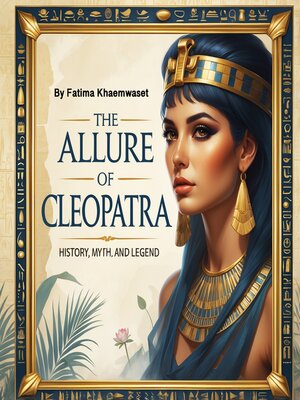
Sign up to save your library
With an OverDrive account, you can save your favorite libraries for at-a-glance information about availability. Find out more about OverDrive accounts.
Find this title in Libby, the library reading app by OverDrive.



Search for a digital library with this title
Title found at these libraries:
| Library Name | Distance |
|---|---|
| Loading... |
This audiobook is narrated by a digital voice.
In the swirling sands of time, few figures have captured the human imagination as completely as Cleopatra VII Philopator, the last active pharaoh of Ptolemaic Egypt. Her story transcends the boundaries of history, weaving through mythology, literature, and popular culture with an enduring fascination that has persisted for over two millennia. Yet beneath the layers of romanticized legend lies a complex portrait of a remarkable woman who wielded unprecedented power in the ancient world.
Born in 69 BCE into the Ptolemaic dynasty, Cleopatra inherited a kingdom that had already witnessed three centuries of Greek rule over Egypt. The Ptolemies, descendants of Alexander the Great's general Ptolemy I Soter, had established their dominion following Alexander's conquest of Egypt in 332 BCE. This Macedonian Greek family had ruled Egypt for nearly three hundred years by the time Cleopatra ascended to the throne, yet she distinguished herself as the first Ptolemaic ruler to actually learn the Egyptian language, demonstrating an unprecedented connection to the land and people she governed.
The Egypt of Cleopatra's era bore little resemblance to the mighty kingdom that had built the pyramids and carved the Sphinx. By the first century BCE, Egypt had become increasingly dependent on Rome's protection and trade, though it remained one of the wealthiest regions in the Mediterranean world. The fertile Nile Delta continued to produce abundant grain harvests that fed much of the Roman Empire, while Egyptian artisans crafted luxury goods coveted throughout the known world. Alexandria, the magnificent capital city founded by Alexander the Great, served as a beacon of learning and culture, housing the legendary Library of Alexandria and attracting scholars, philosophers, and artists from across the Mediterranean.







